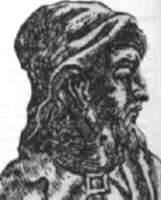

Young Herdsmen with Cows by Aelbert Cuyp, ca. ‘’The goal of humans is to live according to nature, in agreement with the world design…’’ To be happy, we should focus only on things under our control, namely our reactions and responses to situations in the world.We can‘t control anything else, like other people‘s behaviour towards us or what they think about us.There are things one has no control over external states of affairs, nature, body, property, reputation, other people’s reactions and aversions.There are things one has control over opinion, goals, desires, reactions, aversions, affairs of our own.Understanding the dichotomy of control was to understand that: For Epictetus, the most important task for human beings is to know what is and what is not within their control.

Understanding the Dichotomy of Control The School of Athens, depicting Plato (center left) and Aristotle (center right), by Raphael, 1509, via the Web Gallery of ArtĮpictetus, perhaps more so than other Stoics at the time, placed huge importance on the Stoic tenet of control. Stoicism fueled a new philosophical culture which placed human perception at the center of true knowledge, happiness and tranquility.ġ. When Epictetus eventually gained his freedom later in life, he began teaching philosophy in Rome, becoming one the most important stoic philosophers and teachers to have ever lived.

His Roman master Epaphroditus allowed Epictetus to study, which led him to philosophy and his soon-to-be stoic teacher, Musonius Rufus. Sometime around the period of 50CE in the Greek city of Hierapolis, Epictetus was born into slavery within a wealthy family. Who Was Epictetus? Epictetus by William Sonmans, engraved by Michael Burghers in 1715, via Wikimedia commons.


 0 kommentar(er)
0 kommentar(er)
